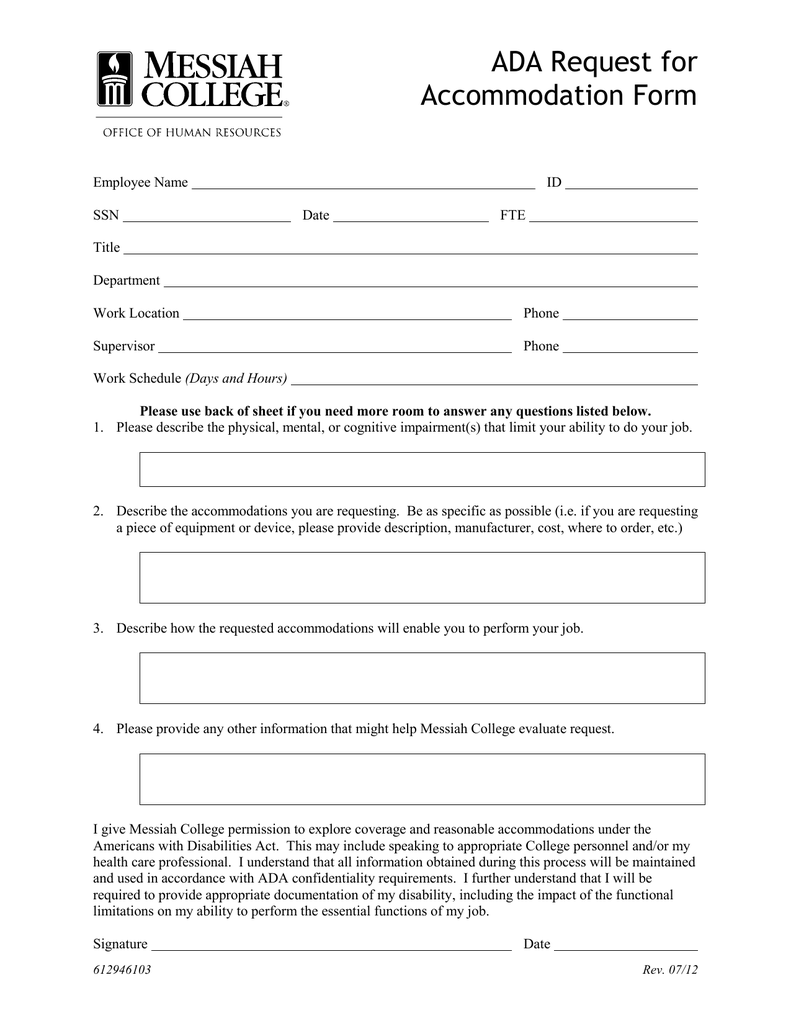
The ADA does not require an employer to provide a reasonable accommodation to an applicant or employee without a disability simply because that person has a relationship with someone with a disability. However, an individual with a disability may request a modification of such an attendance policy as a reasonable accommodation.ĭoes the ADA entitle parents to receive reasonable accommodations such as flexible scheduling from their employers? Doesn't this policy discriminate against me because it does not allow me the time I need to care for my disabled child?Ī uniformly applied attendance policy does not violate the ADA even if it has a more severe effect on individuals with disabilities, or on employees who have family members with disabilities. I am worried that I will be fired because I have missed the maximum number of days allowed by my employer. My child has frequent doctor's appointments, therapies and orthotic fittings. The EEOC has also indicated that employers may be able to prove, in some cases, that a disability-based insurance practice is necessary to prevent a drastic increase in premium payments, co-payments or deductibles, or a drastic change in the scope of coverage that effectively makes the health insurance plan unavailable to a significant number of other employees, or so unattractive that the employer cannot compete in recruiting and maintaining qualified workers. It is legal, however, to place restrictions on certain medications and procedures (for example, bariatric surgery or blood transfusions), providing all employees and their families have the same restrictions, not just those with disabilities. Disability-based distinctions are illegal under the ADA. This is true even if the provision of such benefits would result in increased health insurance costs for the employer.Ĭan my employer-provided health insurance rule out coverage for certain disabilities? Under the Americans with Disabilities Act, an employer cannot fire or refuse to hire an individual because the individual has a family member or dependent with a disability that is not covered by the employer's current health insurance plan, or that may increase the employer's future health care costs.Ĭan an employer offer me a different insurance package than other employees because of my child's medical expenses?Įmployers may not reduce the level of insurance benefits to an employee simply because that employee has a dependent with a disability. Although the ADA only applies to employers of 15 or more employees, there is a comparable section of the Minnesota Human Rights Act prohibiting discrimination on the basis of "association" that applies to all Minnesota employers, regardless of size.Ĭan an employer refuse to hire me because my child's medical needs may increase health insurance costs? This "association" provision of the ADA applies to parents but is not limited to those who have a family relationship with an individual with a disability. It is unlawful under the ADA and the Minnesota Human Rights Act for covered employers to discriminate against a qualified individual because a person is known to be related to an individual who has a disability. Was it legal for my employer to fire me after my child was born with a disability? However, using the Family and Medical Leave Act (FMLA) of 1993 and state laws, as well as the ADA, parents who work for covered employers can weave together some protections in all of these areas. There are some protections for parents in all of these areas but they do not all fall under the ADA.


The questions parents regularly ask relate to: 1) hiring or firing actions based on having a child with a disability 2) employer-provided health insurance and 3) attendance policies and employee leave issues. These parents often ask if Title I of the Americans with Disabilities Act (ADA) protects them as well as their children from employment discrimination.

ADA Q&A: FMLA and Job Protections for ParentsĪdvocates frequently hear from parents of children with disabilities who have experienced employment discrimination based on their child's disability.


 0 kommentar(er)
0 kommentar(er)
